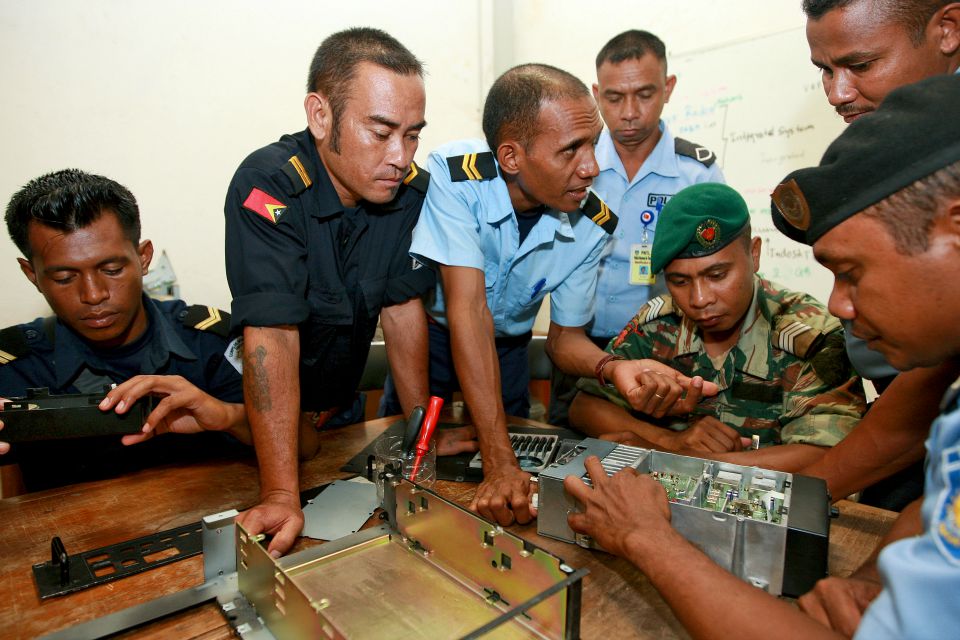"Security and justice are critical for stability."
Statement by Ambassador Peter Wilson of the UK Mission to the UN at the UN Security Council Briefing on the Security Sector Reform

Thank you Madam President, and thank you very much Assistant Secretary-Generals Titov and Nakamitsu and Special Representative Bangura for your very thoughtful briefings and the number of recommendations that you made to us which I think were very creative and ones that we really need to take seriously as a Council. I also pay tribute to your leadership, Madam President, for bringing this important issue to the Council once again.
It’s 18 months since we last discussed Security Sector Reform, and in that time over 780,000 people have been killed by armed violence. That is almost one person every minute.
Only a tenth of these deaths occurred at the hands of terrorists or in full conflict situations. Too many of them occurred in countries which were emerging from conflict, where stability, security and justice have yet to be embedded. We all have got a role to play to stop these deaths. And ensuring an effective and accountable security sector in these countries is a vital way of doing so.
So what can we do, as a Council, and as governments to achieve this? I think that there are three things:
First of all, we need to engage honestly and sensitively with governments and their institutions. Security and justice are critical for stability, but if not handled properly, these issues can fuel instability. Ill disciplined, unaccountable security forces, operating in fragile political climates, can just as easily create grievances as they can address them. We need to judge our support according to the right political pre-conditions. We can’t allow our enthusiasm for ‘getting things done’ to undermine the help we’re trying to give.
Honest engagement can bring risk – and it often requires working with institutions that do not necessarily meet international standards for human rights or transparency. But not engaging isn’t an option – it is precisely these institutional security and justice failures that allow crime and violence to flourish. They are among the key drivers of conflict and extremism. And this Council is then left to tackle the violence and dysfunctionality that they bring.
Madam President,
The second point I want to make is that we need to integrate our work on SSR into our longer term work on conflict prevention, peacebuilding and development. We’ve made a good start. The fact that Assistant Secretary-General Nakamitsu is here from UNDP today, briefing the Council, is progress in itself. In addition, for the first time, our global goals on development, the SDGs, contain a goal on peace, justice and security. This goal cannot be achieved without effective, efficient security forces that can respond to citizens’ needs.
But we want to see more. A fully functional and professional security sector is essential for sustainable peace, and also for the timely exit of UN peace operations. We need better sequenced and better prioritised mandates for peacekeeping operations to achieve this. And we need effective systems to ensure that progress made on security forces does not fall away once a peacekeeping operation leaves. If we get these things right, not only will we decrease the average 15 year lifespan of a peace operation, but we can avoid the tragic relapse into conflict that we see so often.
This all requires a strong commitment from the international community to support countries through the whole of the conflict cycle. But it also requires national political leaders to show courage and drive reforms themselves. That is the only way to ensure that the local security sector is able to deliver for its population when a Mission ends.
Madam President,
It is this concept of local ownership that forms my third point. Locally owned political processes are vital to the success of security sector reform, much more so than externally imposed solutions. This is easy to say, but it is hard to deliver.
In practice, this means that efforts to build security capability in the short-term must be embedded in longer-term efforts to strengthen accountability and the oversight mechanisms in Ministries of Defence, Interior and Justice. As both Dmitry Titov and Izumi Nakamitsu have said, it means that we have to use all of the tools available to the UN, not just the military, to deliver security sector reform. It means coordinated responses, and as we heard in this chamber earlier this week, working with regional and sub-regional organisations. This is the best way to ingrain coherent security sector reform plans within peacebuilding strategies.
To succeed, we also require reform processes that are fully gender sensitive, that incorporate the perspectives and concerns of women. As we have heard today from Special Representative Bangura, gender sensitive SSR programmes are an important tool in the fight against sexual violence. We know how much there still is to do on this.
Madam President,
Let me conclude by thanking you again for bringing this important issue back to the Council. It is an issue my Government cares about deeply. This year, we will spend over 250 million US dollars on security sector reform. That money is making a difference. To take just one example, in Sierra Leone, it has helped the local government improve access to security and justice for nearly 300,000 women and girls in remote districts.
We support these programmes, and more, because we believe that security and access to justice is a basic service, on a par with health and education. It is a fundamental right, as recognised in the Universal Declaration of Human Rights. We owe it to the hundreds of thousands killed since we last discussed this issue to ensure that this right is upheld.
Thank you.